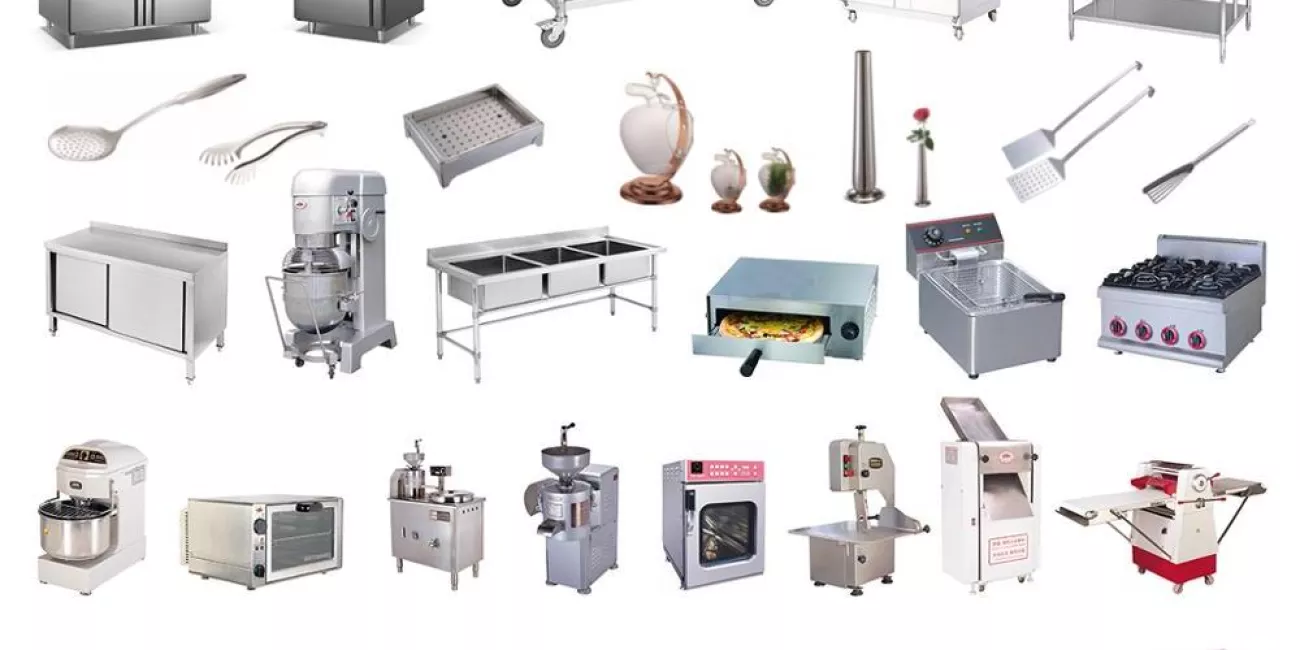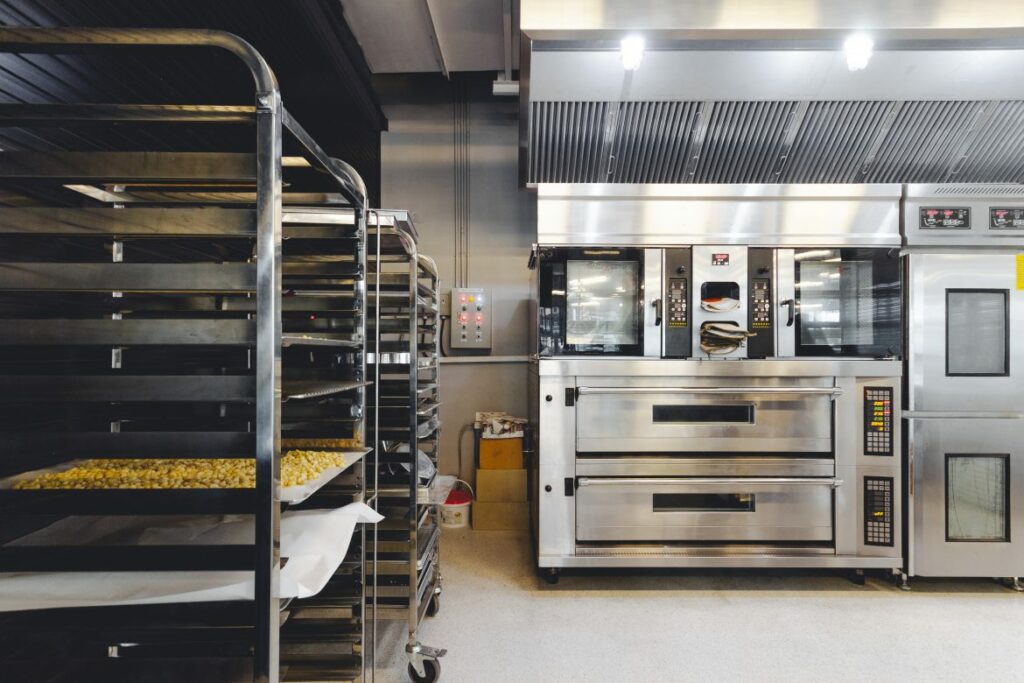What equipment is necessary for commercial kitchen?

Are you planning to open a restaurant or revamp your existing commercial kitchen? One of the most crucial aspects of setting up a successful food business is having the right equipment. From cooking appliances to food storage units, having a well-equipped kitchen ensures efficient operations and high-quality food production. In this article, we will provide you with a comprehensive commercial kitchen equipment checklist, outlining the essential tools and appliances you need to consider. Let's dive in!
Setting up a commercial kitchen requires careful planning and consideration of the necessary equipment. Each piece of equipment plays a vital role in the overall functionality and efficiency of the kitchen. By following this commercial kitchen equipment checklist, you can ensure that you have all the essential tools for a successful food establishment.

Cooking Appliances
Range and Oven
A commercial range and oven are the heart of any kitchen. It allows you to cook a variety of dishes simultaneously. Look for a range that suits your cooking style and the volume of food you plan to produce. Consider the size, number of burners, and whether you need a gas or electric model.
Griddle and Grill
Griddles and grills are essential for preparing grilled sandwiches, burgers, pancakes, and other menu items. Choose a griddle or grill that offers even heat distribution and is easy to clean.
Fryer
If your menu includes fried foods, a commercial fryer is a must-have. Look for a fryer with precise temperature control, a high-capacity oil tank, and safety features.
Steamers
Steamers are ideal for cooking vegetables, seafood, and other delicate ingredients. Consider the size and capacity based on your kitchen's needs.
Microwave Oven
A microwave oven is a convenient appliance for quick heating and reheating. It is especially useful for warming up pre-cooked items or defrosting ingredients.
Refrigeration and Food Storage
Walk-in Cooler and Freezer
Walk-in coolers and freezers provide ample space for storing perishable items. They are essential for maintaining the freshness and quality of ingredients. Choose a size that suits your storage needs.
Reach-in Refrigerator
A reach-in refrigerator allows quick access to frequently used ingredients. Consider the number of sections and their size based on your storage requirements.
Prep Tables
Prep tables provide a dedicated workspace for food preparation. Look for tables with built-in refrigeration units and ample storage space.
Shelving Units
Shelving units help you organize and store non-perishable items, small appliances, and utensils. Opt for sturdy and adjustable shelves for maximum flexibility.
Food Preparation Equipment
Cutting Boards and Knives
Invest in high-quality cutting boards and a variety of knives for different tasks. Ensure you have a separate cutting board for each food group to prevent cross-contamination.
Mixers
Mixers are essential for dough preparation, batter mixing, and other mixing tasks. Choose a mixer with different speed settings and various attachments.
Slicers and Graters
Slicers and graters are useful for slicing vegetables, cheese, and other ingredients with precision. Look for adjustable settings and easy-to-clean designs.
Food Processors
Food processors are versatile tools for chopping, grinding, and blending ingredients. Opt for a model with various blade attachments and different processing capacities.
Dishwashing and Sanitation
Dishwasher
Investing in a commercial dishwasher saves time and ensures thorough cleaning of dishes, utensils, and cookware. Look for models with high-capacity racks and efficient water usage.
Sinks and Faucets
Proper commercial sinks and faucets are essential for handwashing, dishwashing, and food preparation. Install multiple sinks with hot and cold water supply.
Cleaning Supplies
Keep a stock of cleaning supplies such as detergents, sanitizers, and scrub brushes to maintain hygiene standards in your kitchen.
Smallwares and Utensils
Pots, Pans, and Baking Sheets
Invest in a range of pots, pans, and baking sheets to accommodate different cooking techniques. Choose materials that offer even heat distribution and durability.
Utensils and Kitchen Tools
Stock your kitchen with a variety of utensils and tools such as spatulas, tongs, ladles, and whisks. These tools are essential for food preparation and cooking.
Cookware and Bakeware
In addition to pots and pans, invest in cookware and bakeware specific to your menu items. This includes items like roasting pans, casserole dishes, and baking molds.
Safety Equipment
Fire Suppression System
Install a fire suppression system to prevent and control fires in the kitchen. This includes fire extinguishers, fire blankets, and automatic fire suppression systems.
First Aid Kit
Ensure you have a fully stocked first aid kit readily available in case of minor injuries or accidents.
Safety Signs and Equipment
Place safety signs, non-slip mats, and other safety equipment in appropriate areas to prevent accidents and promote a safe working environment.
Conclusion
Having the right commercial kitchen equipment is essential for the success of any restaurant. By following this comprehensive checklist, you can ensure that you have all the necessary tools to run an efficient and productive kitchen. Remember to consider your menu, space availability, and budget when making equipment choices. With a well-equipped kitchen, you'll be on your way to creating culinary delights and satisfying your customers' appetites.
FAQs
Where can I find reliable suppliers for commercial kitchen equipment?
You can find reliable suppliers for commercial kitchen equipment by conducting an online search, visiting local restaurant supply stores like amgoodsuply, or getting recommendations from fellow restaurant owners.
What factors should I consider when selecting commercial kitchen equipment?
When selecting commercial kitchen equipment, consider factors such as quality, durability, energy efficiency, warranty, maintenance requirements, and compatibility with your menu and space.
Can I purchase used commercial kitchen equipment?
Yes, purchasing used commercial kitchen equipment can be a cost-effective option. However, ensure that the equipment is in good working condition and meets safety standards.
How often should I maintain and clean my commercial kitchen equipment?
Regular maintenance and cleaning are essential to keep your equipment in good working condition. Follow the manufacturer's guidelines and schedule routine inspections to address any issues promptly.
Is it necessary to hire a professional for the installation of commercial kitchen equipment?
For complex equipment installations, it is recommended to hire a professional technician with experience in commercial kitchen equipment installations to ensure proper setup and functionality.
